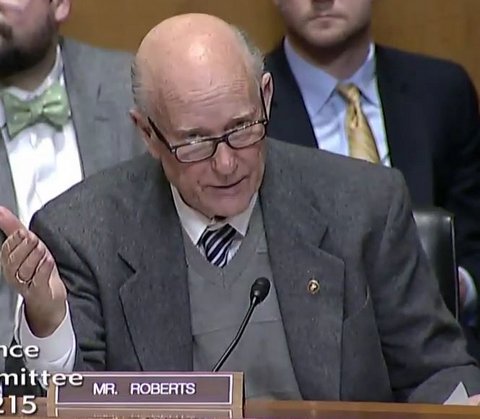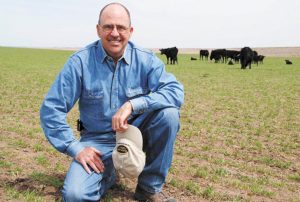
If Justice is a fundamental principal of the American way of life, then Secretary Perdue has violated this principle. The Packers and Stockyards Act was intended to ensure producers of livestock their due, protecting them from the abusive monopoly power of big meat packers. Secretary Perdue now completes America’s Return to the Jungle. Former GIPSA Administrator (Grain Inspection, Packers and Stockyards Administration), Dudley Butler has a message for Secretary Perdue:
DESERTION AT THE HIGHEST LEVEL
Years after passage of the Sherman Act (1890) and the Clayton Act (1914), the Packers & Stockyards Act (PSA) (1921) was passed to regulate packers and poultry companies and to provide greater protection for farmers and ranchers against unfair, unjustly discriminatory, and deceptive practices as well as undue or unreasonable prejudice and disadvantage. Even the threshold for proof is less, not competitive injury but likelihood of competitive injury.
The PSA has always been a “remedial” and “quasi-anti-trust” act. For people to interpret it differently, they have to be “politically motivated”, “philosophically motivated”, “intellectually dishonest” and/or “educated beyond their intelligence”.
The bedrock of the PSA is Section 202 entitled “Unlawful practices enumerated”. Two portions of this section help explain some of its remedial purposes.
It shall be unlawful for any packer or swine contractor with respect to livestock, meats, meat food products, or livestock products in unmanufactured form, or for any live poultry dealer with respect to live poultry, to:
(a) Engage in or use any unfair, unjustly discriminatory, or deceptive practice or device; or
(b) Make or give any undue or unreasonable preference or advantage to any particular person or locality in any respect, or subject any particular person or locality to any undue or unreasonable prejudice or disadvantage in any respect;
USDA Secretary Perdue exhibits a complete lack of knowledge of the PSA and related law as well as the conditions in the livestock and poultry industry and rural America. He is either incompetent or corrupt or both. His interpretation of the PSA renders it virtually unenforceable. Example: A packer could defraud a rancher on a shipment of cattle and the rancher could not bring suit in Federal Court to recover his or her money unless he or she could prove some type of harm to the marketplace.
The Farmer Fair Practices Proposed Rules provide guidelines for the industry and protections for farmers and ranchers. These guidelines would protect farmers and ranchers against bad faith, retaliation, denial of due process and fraud. Guidelines reduce litigation; they don’t increase it. Additionally, they would allow for administrative actions before USDA administrative judges, thereby reducing possible Federal Court litigation.
Perdue slanders farmers and ranchers as litigious people that the multi-national corporations must be protected against. Farmers and Ranchers don’t file frivolous lawsuits. They are the least litigious people in this country.
Farmers and ranchers are the backbone of America and they paved the way for Trump to be President. They thought he was their President but he and his minions have now sold these very farmers and ranchers down the river.
J. Dudley Butler
Former Administrator of the Grain Inspection, Packers and Stockyards Administration



 Since the 1960s, there’s been a concerted effort by economists and policymakers to consolidate family farms into large-scale industrial agriculture operations. The thinking was that these giant farms could better feed the world.
Since the 1960s, there’s been a concerted effort by economists and policymakers to consolidate family farms into large-scale industrial agriculture operations. The thinking was that these giant farms could better feed the world.













